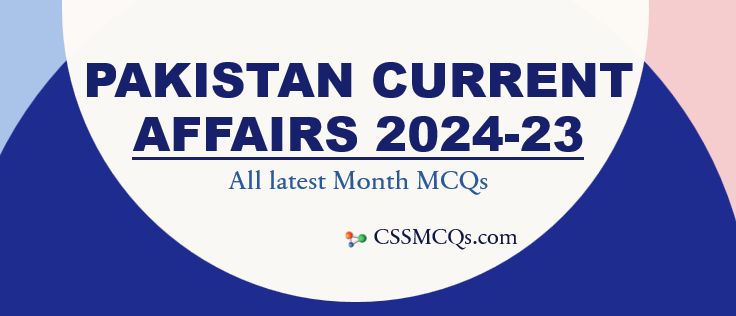Pakistan Current Affairs MCQs 2024 FPSC NTS PPSC Past Papers Test Questions
- » Current Affairs of Pakistan 2022-2023 All latest month MCQs
- » Pakistan Current Affairs 2023/2022/2021/2020 MCQs pdf download
- » Top Most Important Current Affairs of Pakistan 2021

Current Affairs Pakistan MCQs 2024
Looking for the latest Pakistan Current Affairs MCQs 2024? Prepare for competitive exams like FPSC, NTS, PPSC, KPPSC, and SPSC with our comprehensive test preparation materials. Our collection includes past papers, solved questions, and multiple-choice questions on current affairs of Pakistan. Stay updated on recent national issues, important events, and the most repeated MCQs of Pakistan Current Affairs. This MCQs Quiz will help you excel in your upcoming tests with the latest and most relevant content.
CSS Current Affairs MCQs 2025 | Fully Solved with Explanations
Are you preparing for the CSS Current Affairs MCQs paper and aiming for top scores in 2025? Mastering Current Affairs is key to success in the CSS exam, and the best way to prepare is by practicing solved MCQs from past papers.
This post provides CSS Current Affairs solved MCQs, structured just like real exam questions, helping you strengthen your knowledge and boost your preparation. » Read More…
- 1
- 2
- 3
- 4
- …
- 63
- Go to the next page

